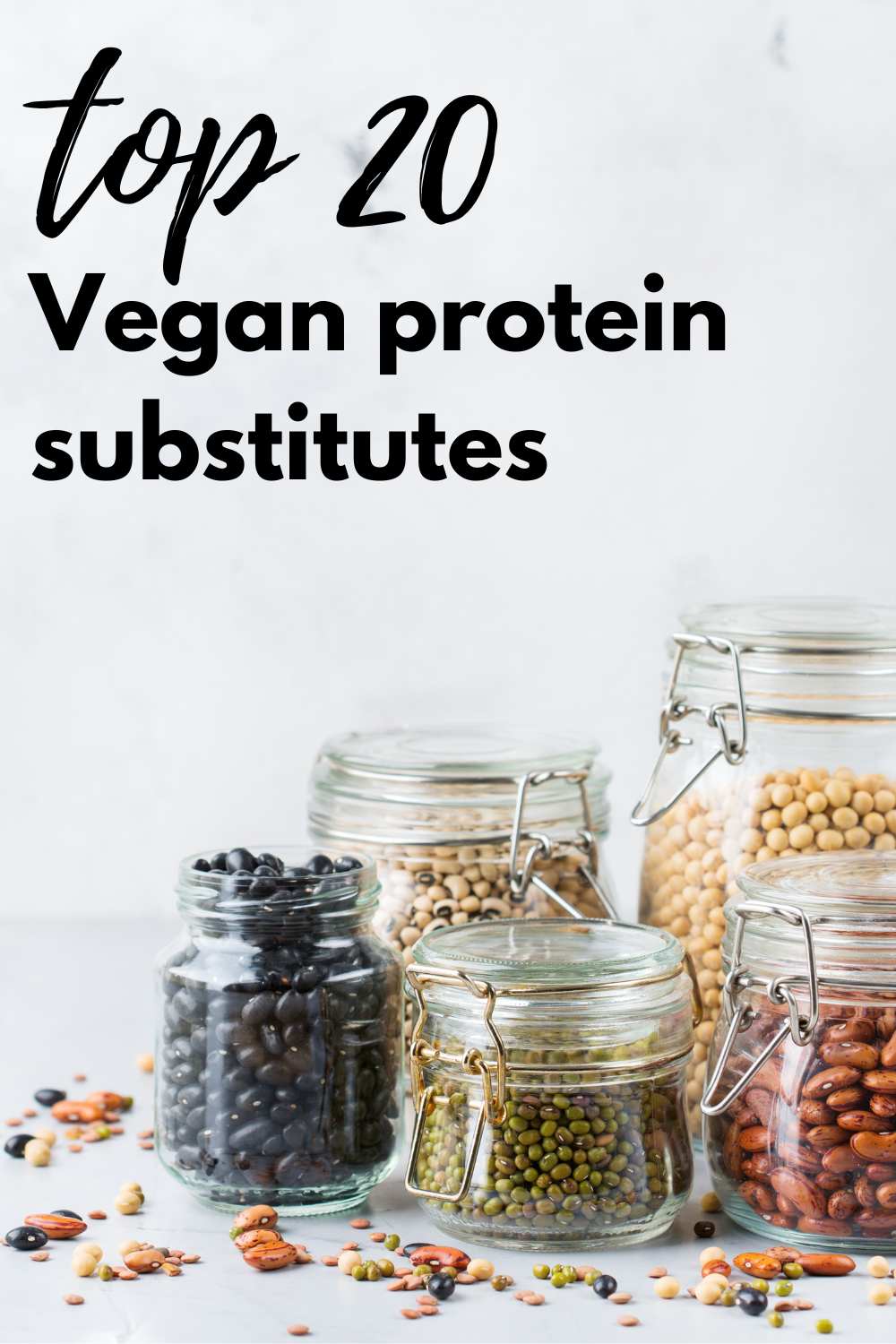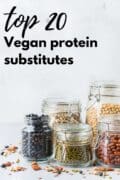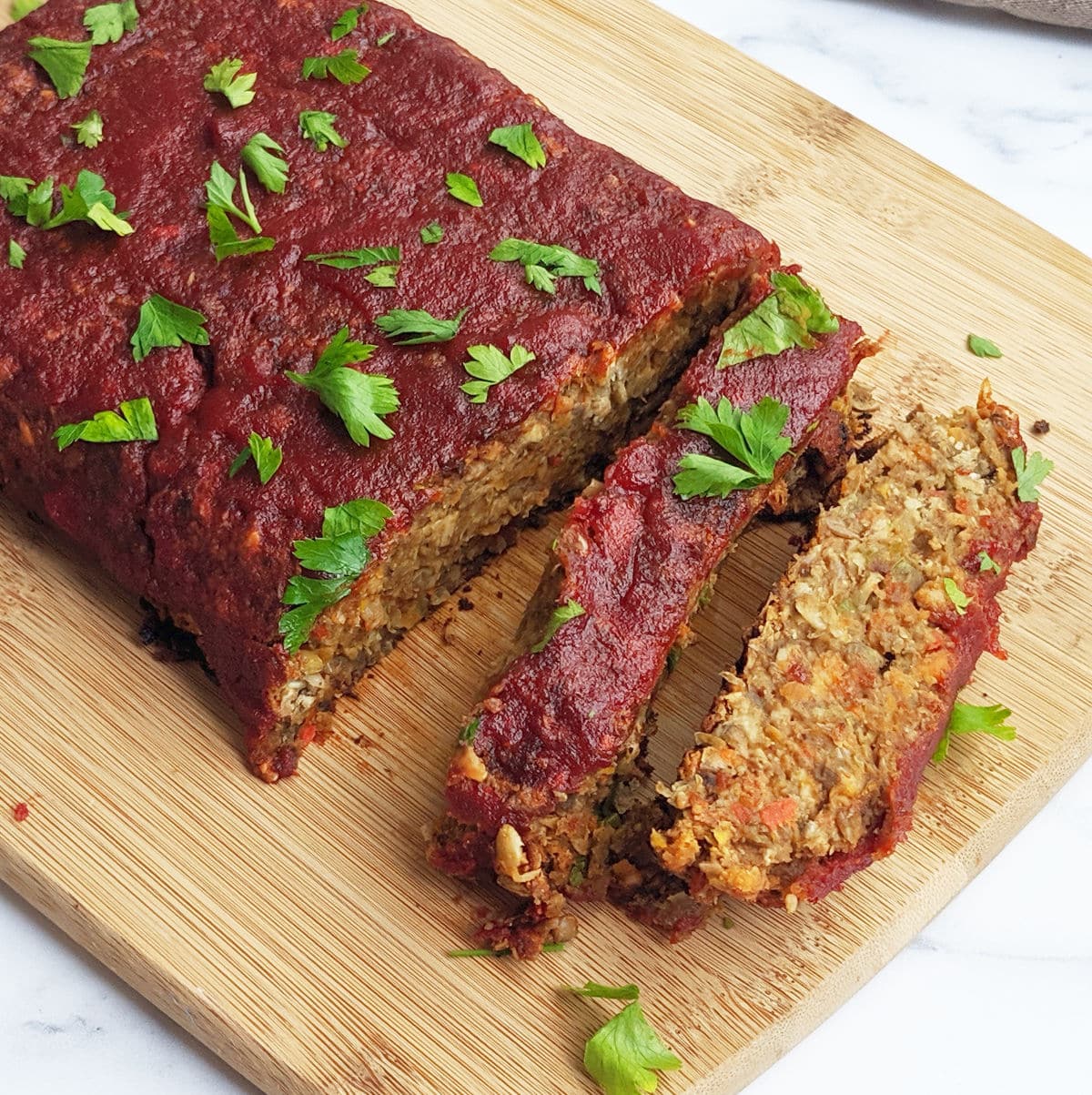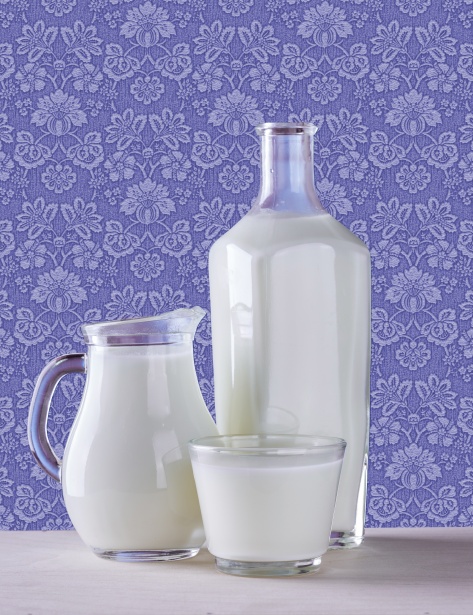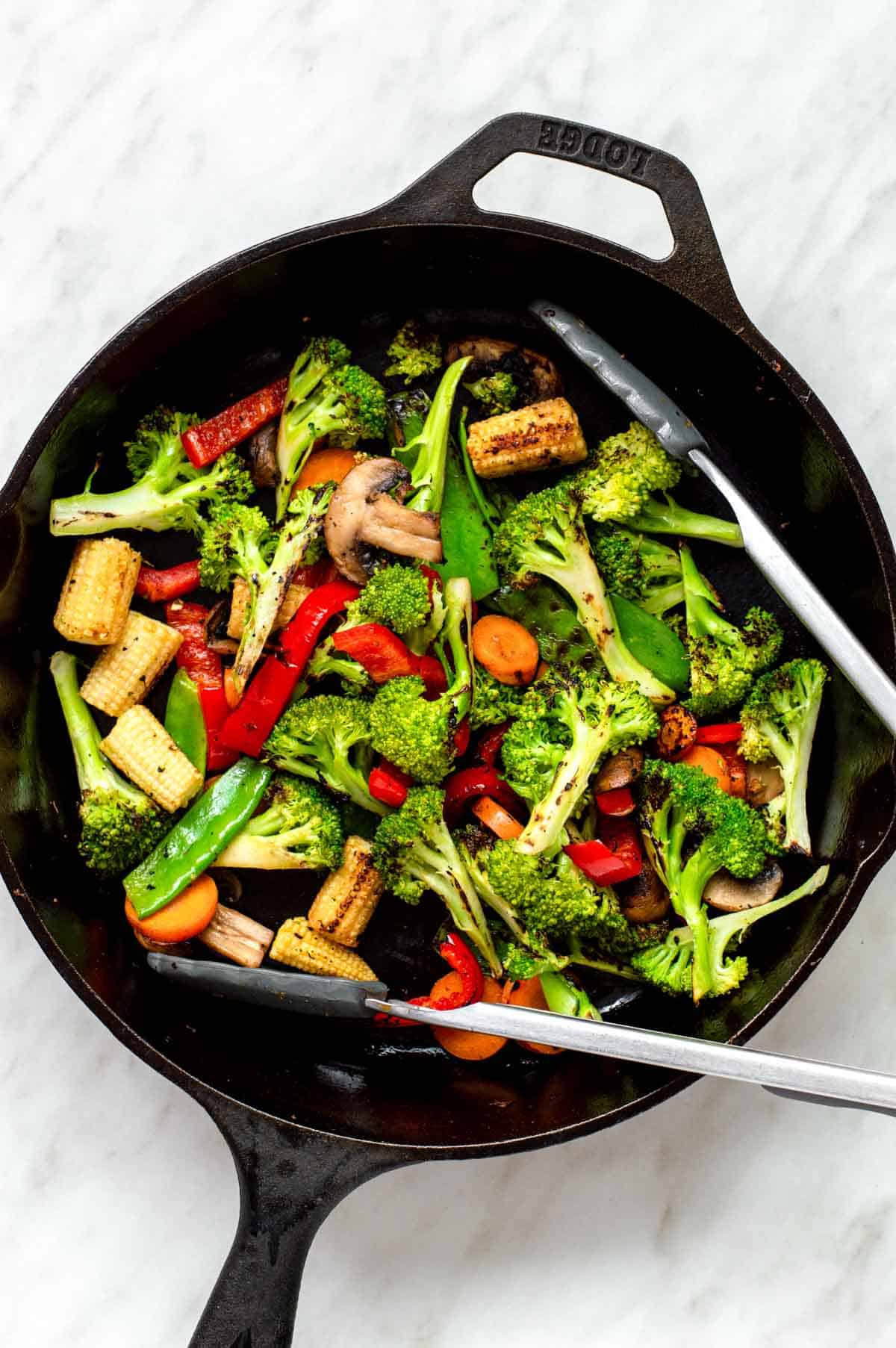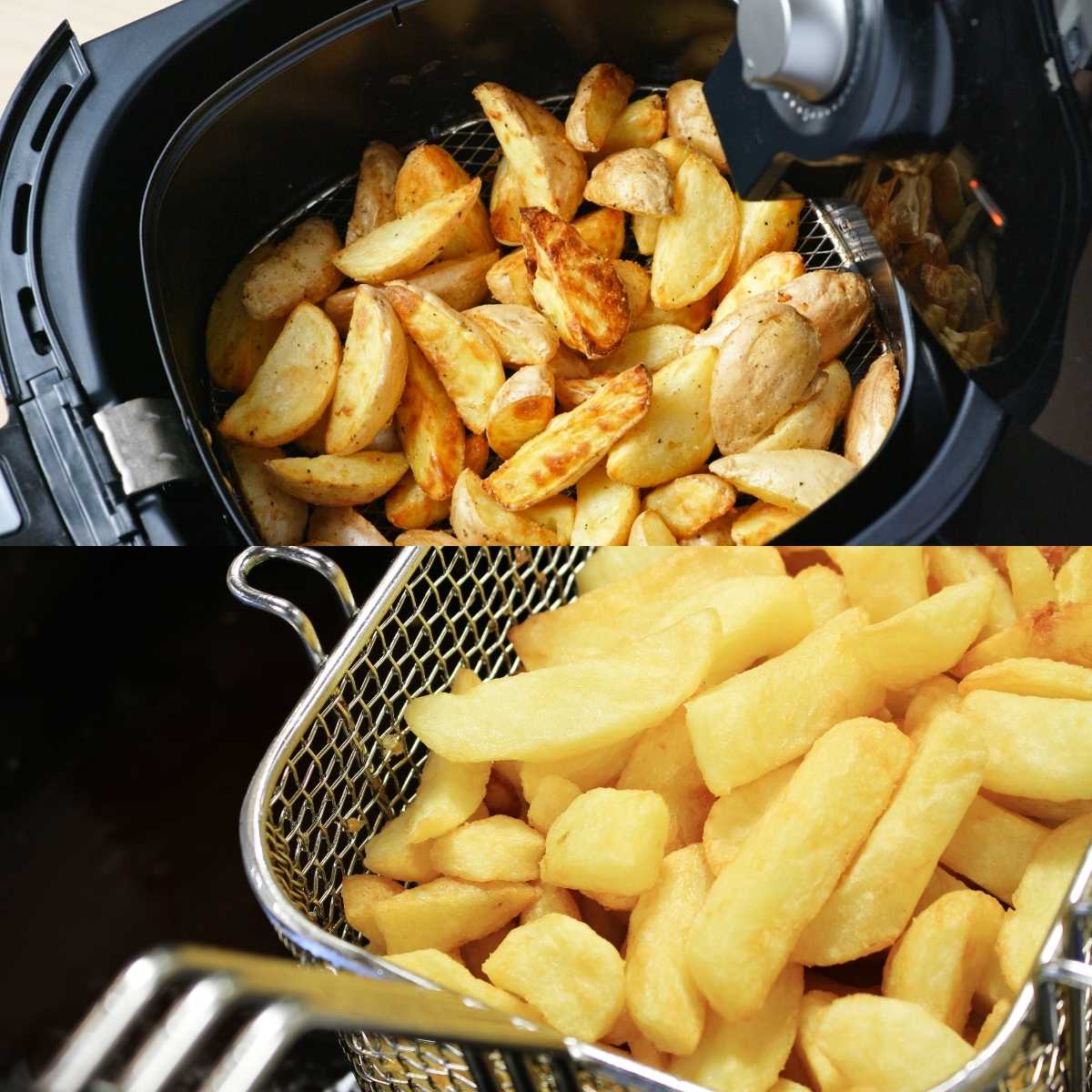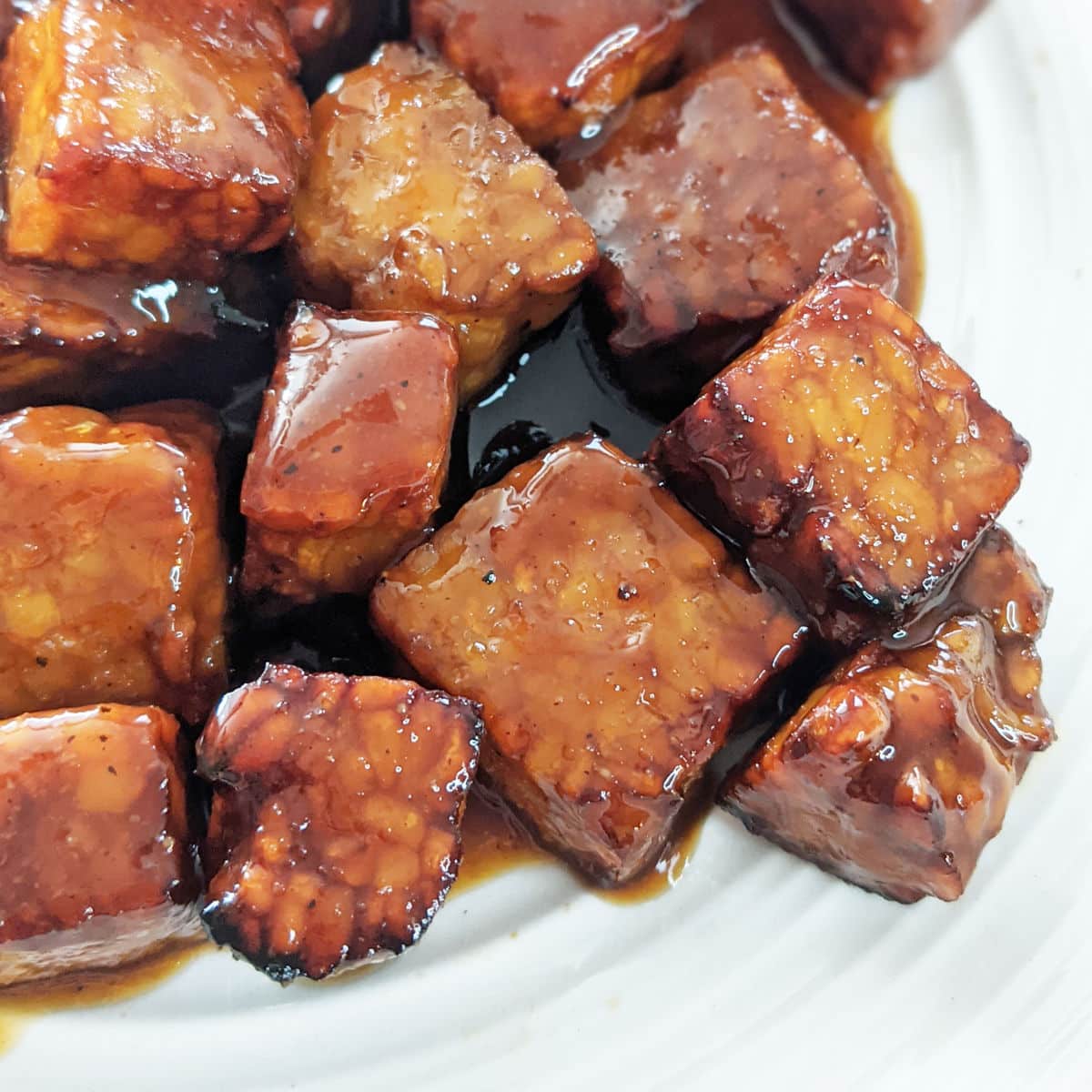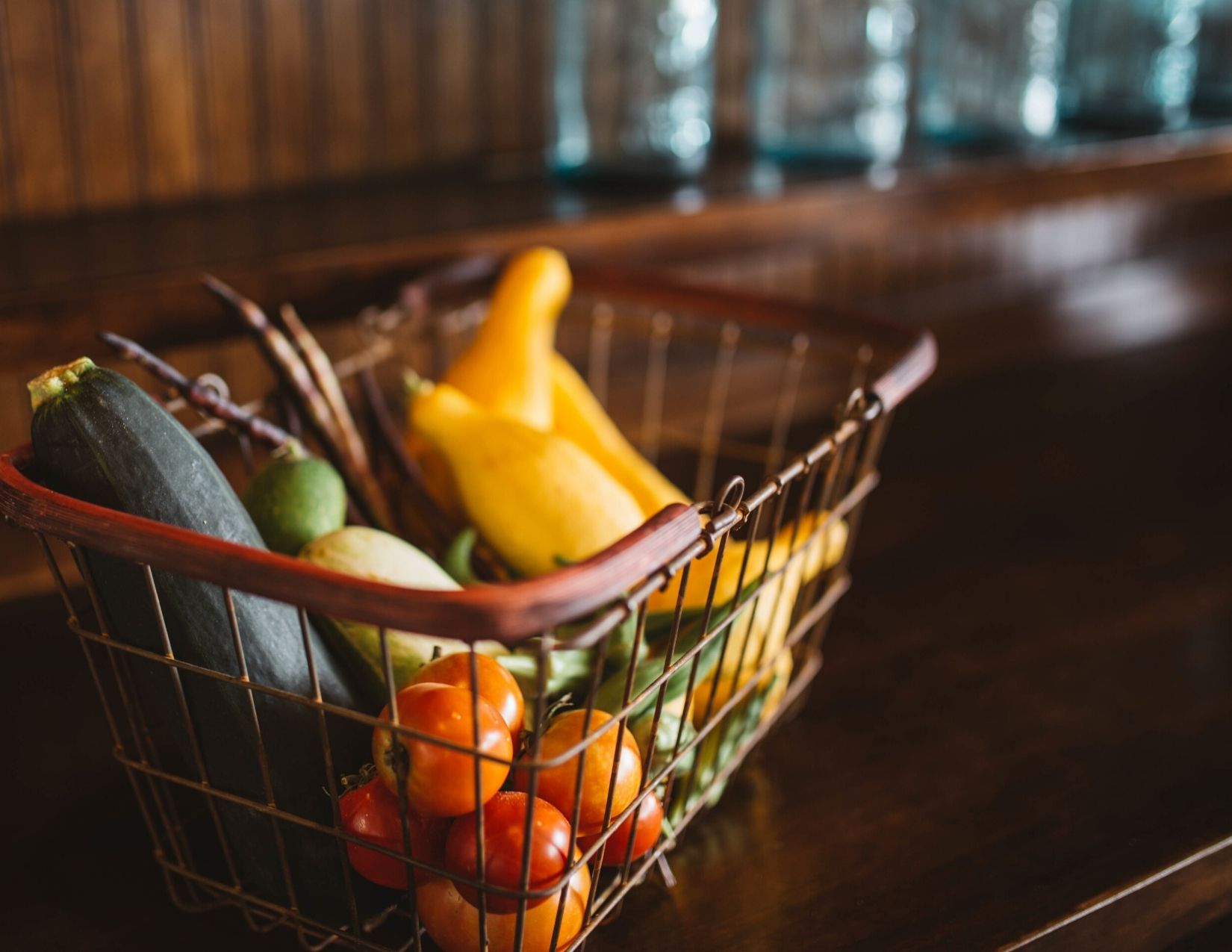Make sure you include these top 20 vegan protein substitutes into your vegan diet. Eating a variety of sources for protein helps to ensure you are getting a balance of essential vitamins and minerals as well as provides you with all of the essential amino acids that make up our protein requirements.
This post may contain affiliate links. Read my policy page for more information.
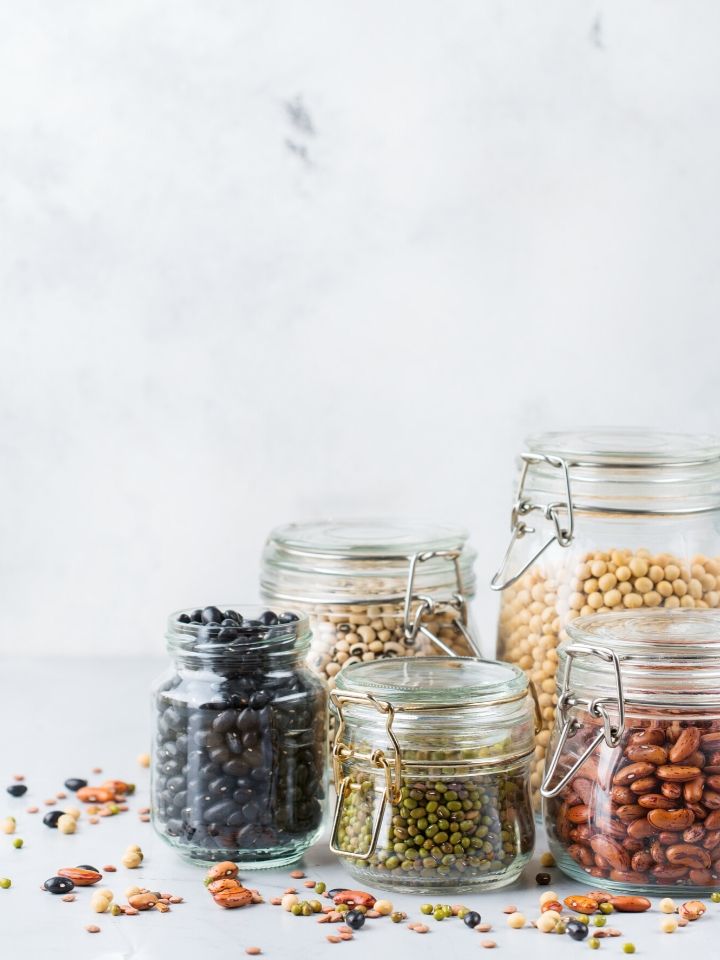
Jump to:
Where do vegans get protein from?
Probably the biggest question everyone wants to know when switching to a vegan diet is where do you get your protein?
That seems to be the running joke about vegans – that we are just weak and protein deficient beings, slowly withering away. But it couldn’t be farther from the truth. In fact, ALL fruits and vegetables contain protein. Unless you’re not eating enough calories, you are probably getting enough protein.
What we need to pay attention to is the variety of protein sources. This is important because not all protein sources are the same. There are some proteins that cannot be made by the body that we need to get from food. These are called essential amino acids. The 9 essential amino acids are: histidine, isoleucine, leucine, lysine, methionine, phenylalanine, threonine, tryptophan, and valine.
Although all of these amino acids are present in all plants, the amount will vary. This is what some refer to as “incomplete proteins” but it is a misnomer for the reason just stated. No plant food is completely devoid of any essential amino acid. Rather, they provide a limited amount of an essential amino acid compared to the rest. However, if we eat a variety of plant-based proteins, we are more easily able to meet our needs of all nine essential amino acids.
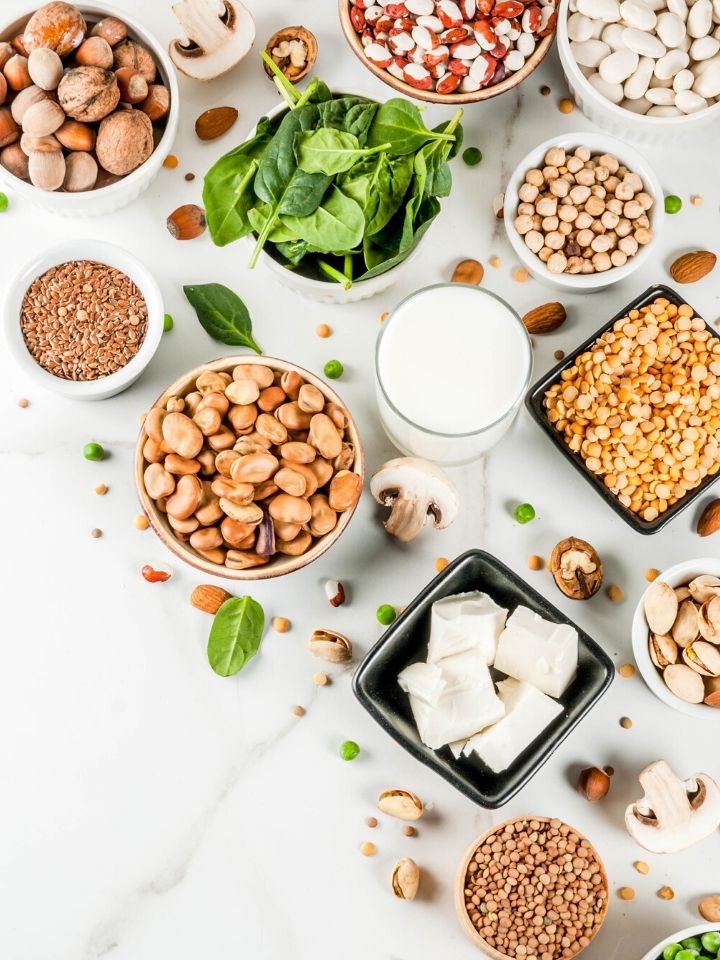
Do we need to protein combine?
A popular food myth is that protein combining is necessary to offset the limiting amino acid profile in plant foods. For example, needing to combine rice and beans in the same meal. In actuality, protein combining is not necessary as long as we vary our protein sources throughout the day. This is because our bodies aren’t limited to making new proteins with just what’s available from your recent meal. Your body also uses amino acids from your reservoir “pool” that’s part of the natural process of amino acid recycling in your body.
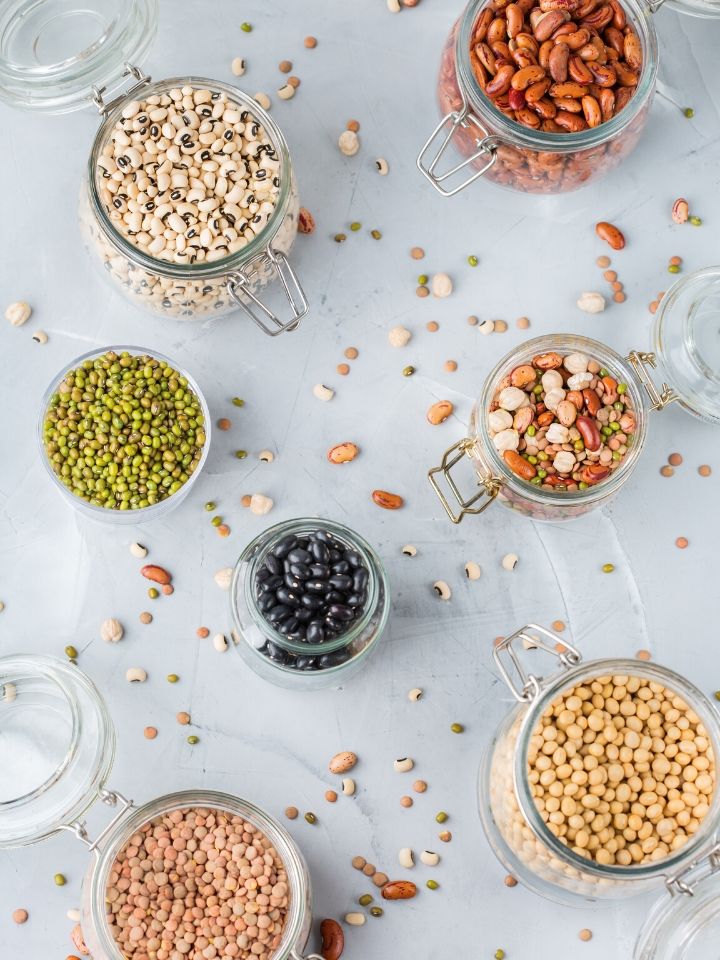
Best Vegan Protein Substitute Sources
Some plant protein sources are better than others. Fruits are typically lower in protein than vegetables for example. Eating a diet of mainly fruits could put you at risk for protein deficiency. In order to make sure our protein needs are met we need to not only eat enough calories for our activity levels, but eat sources that also have decent protein content.
The following plant-based foods have a higher protein content per serving, making them the best choice for replacing animal proteins. Not only that, they are also relatively inexpensive, and easy to source at most local grocery stores.
Data for the following is based on a typical serving size of 1/2 cup cooked for beans, legumes, and grains, 1/4 cup for nuts, and 2 tablespoons for seeds. Sourced from the Nutrition Coordinating Center Food & Nutrient Database and the USDA.
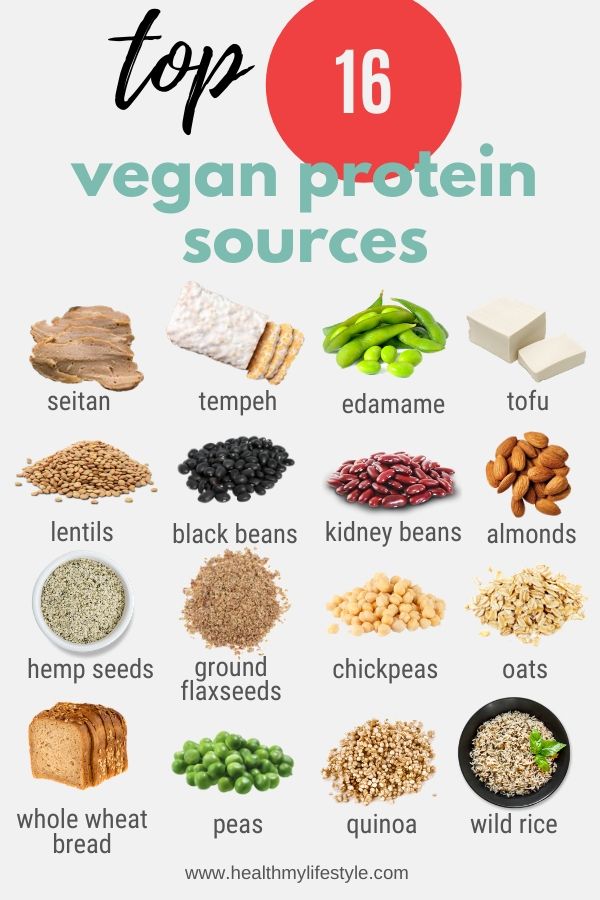
1. Seitan
Seitan, pronounced ‘say-tan‘, is a high-protein flour extracted from vital wheat gluten, the main protein in wheat. It’s made by washing wheat flour dough with water until all the starch granules have been removed, leaving behind the sticky insoluble gluten. It is not suitable for those with celiac disease or gluten sensitivity.
Its high protein content is great for making meat substitutes as the dough lends to a meaty texture once cooked. You can make vegan wings, vegan BBQ sandwiches, vegan shrimp and even vegan steak with it!
With 24 grams of protein per 1/2 cup serving, it’s one of the highest plant sources of protein available.
2. Tempeh
If you’ve never heard of tempeh before, it’s very similar to tofu in that they’re both made out of soy beans. Tempeh is made from whole soybeans that have been fermented whereas tofu is smoother and made from blended soy beans.
Tempeh has a firm, chewy texture and a bit of a mild nutty flavor. It’s easy to prepare by simply marinating, then sautéing, roasting or air frying. This marinated air fryer tempeh is great for adding to stir fries, curries, tacos, and salads.
One 1/2 cup serving of tempeh is 16.9 grams of protein.
3. Tofu
Tofu, as we know, is the the blended bean curds of soybeans that have been pressed into a solid block with varying degrees of softness. It has a mild flavor and spongy texture that’s great for absorbing flavors and can be used in both savory and sweet dishes.
Soft, or silken tofu, it’s great for blending into dips, smoothies, or desserts like pies and puddings. Firm, extra-firm or super firm is best as a vegan meat substitute since they hold shape better. It’s great as a vegan scramble, or for adding to curries, stir fries, tacos, salads, and more!
Just one 1/2 cup serving yields 16.7 grams of protein.
4. Edamame
Edamame are soybeans harvested at a fresh green stage. Much like other soy products, they are an excellent source of protein.
They’re great for adding to just about anything that tofu or tempeh are added to including stir fries and curries.
A 1/2 cup serving of edamame is 11.1 grams of protein.
5. Lentils
One of the best vegan protein sources is the humble lentil. From brown, green to red lentils, any lentil variety is a great source of protein.
Lentils are so versatile, they can become a ground beef replacement, can be mashed into a veggie burger, added to a soup, stew, or curry, and are great on top of salads.
There’s 9 grams of protein in a 1/2 cup serving.
6. Nutritional Yeast
Nutritional yeast is a deactivated yeast, meaning it cannot leaven. It comes from a strain of Saccharomyces cerevisiae, a single celled fungus used in winemaking, brewing, and baking (and yes, it’s vegan!).
It has a nutty, cheesy flavor, making it perfect for dairy-free dishes. It can magically transforms into a cheesy sauce, makes a great vegan parmesan, or can simply be sprinkled on pasta or any dish you want to add a cheesy flavor to.
It’s also often fortified with B12 so it has more than one benefit on a vegan diet!
2 tablespoons has 8.5 grams of protein.
7. Black Beans
Beans are great sources of protein and the black bean is definitely a contender. Whether cooked from dry or bought canned, black beans are a convenient way to up your protein intake.
Add some black beans to your next chili or stew, toss them in a salad, or blend them into a sauce.
A 1/2 cup serving provides 7.1 grams of protein.
8. Kidney Beans
Red kidney beans, shaped like the human kidney and thus named after such, are one of the most common beans across the world. Although they should always be cooked, they are great enjoyed hot or cold.
This hearty bean can be added to a variety of dishes including chili sin carne, red beans and rice, curries, salads, and soups.
A 1/2 cup serving has 7 grams of protein.
9. Almonds
Moving on to nuts, almonds are a good source of protein and healthy fats. Choose raw almonds when possible, since roasting can destroy heat sensitive nutrients such as the B vitamins niacin, thiamine and folate.
Almond butter is also a good choice and great for drizzling over oatmeal, mixing into homemade granola bars, or blending into smoothies. For whole almonds, sprinkle them over vegan salads.
1/4 cup of almonds has 6.9 grams of protein.
10. Pistachios
Pistachios are another great vegan protein substitute on a plant-based diet. Referred to as a nut but technically a seed, pistachios are also high in unsaturated fats, the beneficial fats that can improve blood cholesterol levels and ease inflammation.
Pistachios have 6.5 grams of protein per 1/4 cup.
11. Hemp Seeds
Like nuts, seeds are a great protein source. These tiny off-white seeds pack 6.3 grams of protein into 1/4 cup. They’re also a great source of omega-3 fatty acids.
Simply sprinkle them over salads or blend them into a smoothie for some extra protein.
12. Ground Flaxseeds
Flaxseeds have similar benefits to hemp seeds, with almost the same amount of protein and also contain omega-3 fatty acids in the form of ALA.
These seeds are best consumed ground or else they pass through our digestion without absorbing all of the wonderful nutrients they provide. Look for ground flaxseeds, also known as flax meal, or grind your own whole flaxseeds using a coffee or spice grinder.
Flaxseeds are great for adding to smoothies for a boost in protein, or used as an egg replacer in baking since it has excellent thickening capabilities.
1/4 cup of ground flaxseeds provides 6 grams of protein.
13. Chickpeas
Chickpeas, also known as garbanzo beans, are the perfect mild flavored legume to add to just about any dish. They’re great for adding curries, like chana masala, chili, stir fries, pasta dishes and more! They can even be ground into a great gluten-free chickpea flour that can be turned into a vegan scramble or a vegan frittata.
1/2 cup of chickpeas provides 5.4 grams of protein.
14. Oats
This wholesome whole grain is full of healthy protein and fiber. It’s also one of the most versatile grains. It can be used in the classic oatmeal and overnight oats but it can also be ground into a flour for baking vegan chocolate cupcakes, added to a pie crust like these healthy lemon bars, made into cookies, or turned into a delicious banana bread.
Just one 1/2 cup of oats has 5.4 grams of protein.
15. Whole Wheat Bread
Whole grains are an excellent source and whole wheat bread is no exception. You may not think of bread as a good way to get more protein in your diet, but a less processed slice full of whole grains is far from empty calories.
Next time you need a quick snack or meal, make some toast and turned it into a sandwich or top it with some avocado and hemps seeds for additional protein! If you have more time, make your own vegan soda bread using whole wheat flour.
One slice of whole wheat bread has 4.5 grams of protein.
16. Peas
Green peas are small but mighty. They’re easy to overlook when it comes to choosing adequate protein sources but don’t knock peas as a vegan protein substitute.
There’s a reason many plant-based protein powders use pea protein.
1/2 cups of peas provides 4.1 grams of protein.
17. Quinoa
Another protein-rich food is quinoa. It’s known as a complete protein source since it contains fair amounts of all nine essential amino acids. Although you can hit daily protein requirements with a variety of plant protein as long as you’re eating enough for your energy requirements, there’s definitely some additional benefit to eating quinoa.
This ancient grain is a complex carb, full of protein and fiber and a good source of iron, manganese, phosphorus, and magnesium. Use it in place of rice, or add toss it into salads.
1/2 cup cooked quinoa has 4 grams of protein.
18. Soy milk
This creamy plant milk made from blended soy beans is one of the most similar plant milks compared to cow milk, nutritionally speaking. It has a similar amount of protein and is often fortified with nutrients like calcium to make it the perfect dairy replacement.
Use it as you would cow’s milk by adding it to smoothies, pouring onto your morning cereal, making creamy oats, or adding to your baked goods like muffins, cakes, and cookies.
1/2 cup soymilk has 3.9 grams of protein.
19. Wild Rice
Wild rice has many health benefits compared to regular white rice and has even more protein than brown rice! Just make sure to thoroughly wash wild rice before cooking as this helps reduce potential arsenic contamination.
Use wild rice in any of your favorite rice dishes for some extra protein and fiber! Throw it in a vegan stew, add it to a casserole, or make an easy one-pot potato rice side dish!
1/2 cup cooked wild rice has 3.3 grams of protein.
20. Chia seeds
Another seed with loaded with benefits are chia seeds. These tiny seeds are a good source of iron, calcium, omega-3 fatty acids, and antioxidants.
They are best consumed blended or soaked to help with digestion and unlocking all the benefits. Similar to flaxseeds, their ability to absorb water makes then an excellent egg substitute.
Add them to smoothies, overnight oats, baked goods, or a chia lime agua fresca—a light lemonade or limeade with chia seeds.
Chia seeds 3.3 grams of protein per 2 tablespoons.
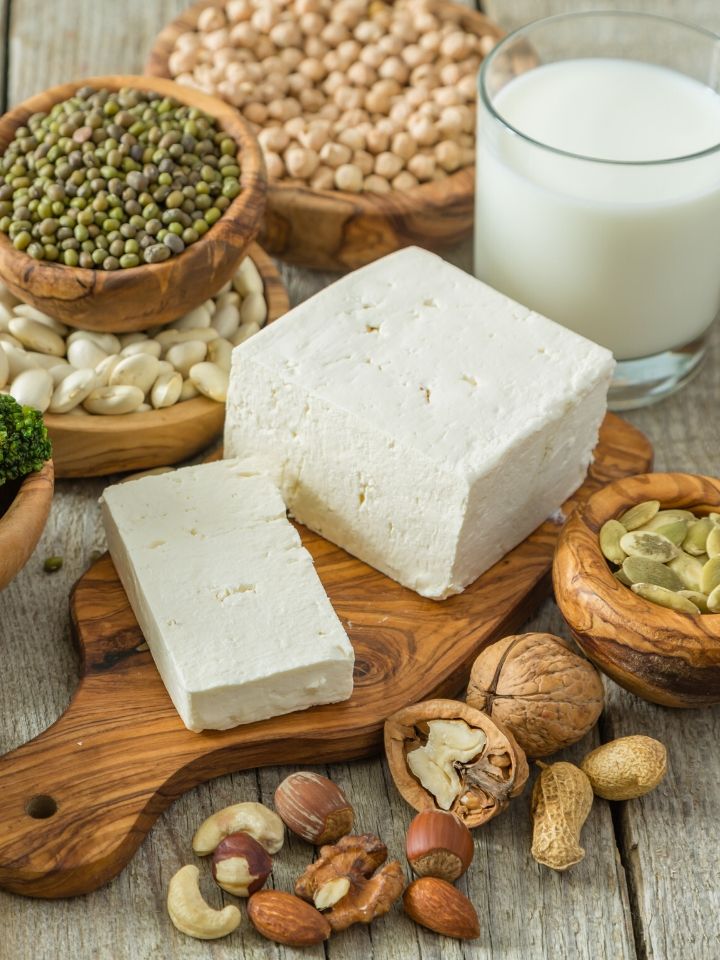
How to Meet Your Essential Amino Acid Needs on a Plant-Based Diet
Simply put, eat the foods that contain a higher amount of protein, and eat a variety of them. Don’t limit yourself to just beans or just nuts. Eat a variety of beans, nuts, grains, veggies, and seeds for a balanced plant-based diet.
Want to know how much protein you actually need? Check out this protein article that simplifies it.
Want some simple, high protein plant-based meals? Try these:
- One-Pot Coconut Lentil Curry
- Protein Overnight Oats
- Tomato & Tofu Pasta Casserole
- Chocolate Peanut Butter Banana Protein Smoothie
- 20+ High Protein Vegan Pastas
More easy, balanced plant-based meals are available in the Health My Lifestyle Meal Planner. It’s the last meal planning tool you’ll ever need. You can easily narrow down exactly what you’re looking for with the extensive filtering options, plan out your week in seconds or grab a pre-made plan, track your calories and goals, and more! Check out the Meal Planner here.
Frequently Asked Questions
Contrary to popular belief, increasing protein consumption does not equate to a decrease in muscle mass during weight loss. It’s more important to do resistance training to maintain muscles. If you don’t use it, you lose it.
If you’re making a meal and need a quick meat replacement, tofu, tempeh, or any bean makes a good vegan protein substitute. They all are great plant proteins and will make the dish more filling.
Vegans can easily get protein by eating a variety of whole grains, legumes, nut and seeds. Soy products like tofu, tempeh, edamame and soy milk are also great vegan protein substitutes.
Pin this for later:
